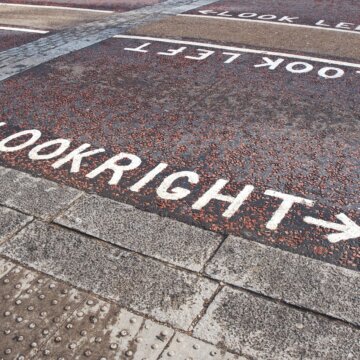- About
- Topics
- Picks
- Audio
- Story
- In-Depth
- Opinion
- News
- Donate
-
Signup for our newsletterOur Editors' Best Picks.Send
Read, Debate: Engage.

| topic: | Democracy |
|---|---|
| located: | Germany, USA, France |
| editor: | Gurmeet Singh |
The restrictions were lifted, the protests went ahead, it was seen around the world: the Neo-Nazi flags had reached the Reichstag.
We’ve become a little used to seeing Neo-Nazis and the far-right marching over the last few years, whether in the U.S., the U.K. or France, so it may be difficult to describe the shock impact of seeing such people on the march in central Berlin. The far-right have recrudesced in Dresden, Chemnitz and other parts of former East Germany, but they had hitherto not been able to make the symbolic gesture of marching in the capital of a country which has tried to confront and banish its fascist history. Under normal circumstances, they would have been met with immense resistance. But these are not normal circumstances.
“For weeks, concern has been rising that the growing protest movement against Germany’s anti-coronavirus restrictions was being hijacked by the far-right. When right-wing radicals waving nationalist flags broke through police barriers on Saturday to storm the Reichstag building, the home of the country’s parliament, those fears were emphatically confirmed.
Politicians reacted furiously, with Annegret Kramp-Karrenbauer, leader of the governing CDU party, saying public anxiety about the clampdown had been “misused for Nazi propaganda”. Frank-Walter Steinmeier, German president, called the Reichstag incident an “intolerable attack on the heart of our democracy,” wrote the Financial Times.
The “querdenker” movement brings together a host of different groups and people: from anti-vaccination protesters to anti-establishment groups, to a few people who believe their civil liberties are threatened by coronavirus legislation. The movement itself has links to right-wing organisations. Seeing that the movement unites people of such disparate backgrounds, the far-right has seized the opportunity to jump into the mix. Not only does the movement allow the far-right to potentially attract new members to their groups, but it also enables them to blend in with the querdenker, using the anti-coronavirus legislation message as a conduit for their racist and nationalist concerns.
“At the coronavirus sceptics' demonstration, one protester carrying a Swedish flag in support of the country's response to coronavirus said it was the media's job to "report the truth that not all the protesters at the demo are far-right extremists."
…Asked if she found it problematic to walk alongside known neo-Nazis, one woman who said she was there to spread a message of "humanity and love" wasn't perturbed by their presence. "Everyone has their right to express their views, even if it's not one that I share," she said.”
There are indeed issues around the freedom of assembly to do with the protests, which Germany will have to more readily confront. However, framing the argument as one of freedom of expression makes it easy to excuse the far-right; a strategy which they will deploy with renewed vigour, stating that their hateful views are mere expression.
What’s more is that this comes at a time when police in Germany are under investigation for neo-Nazi links. For the past two years, German officials in the southwest city of Frankfurt are investigating a data breach in police computers, which was allegedly shared with far-right activists or neo-Nazis. The result was that prominent women politicians, artists, lawyers and journalists started getting threatening emails.
Officials have been pointing a needle of suspicion on an insider, a public servant who may have passed the sensitive information to the activists of the National Socialist Underground (NSU), the neo-Nazi terror cell, responsible for racially motivated murders.
Since 2018 several such cases are leading suspicion to the doors of Frankfurt police. Six police officers in the country are under investigation, for their suspected involvement in sending threatening letters. One of them was arrested temporarily in 2019. Five of them have been suspended from the service.
But even after an 18-month long investigation, judicial authorities are yet to charge them. With the far-right making headway in new groups and establishing networks from within the police, what’s the best way to stand up to them during the pandemic and beyond?
Image by Andrew Martin
